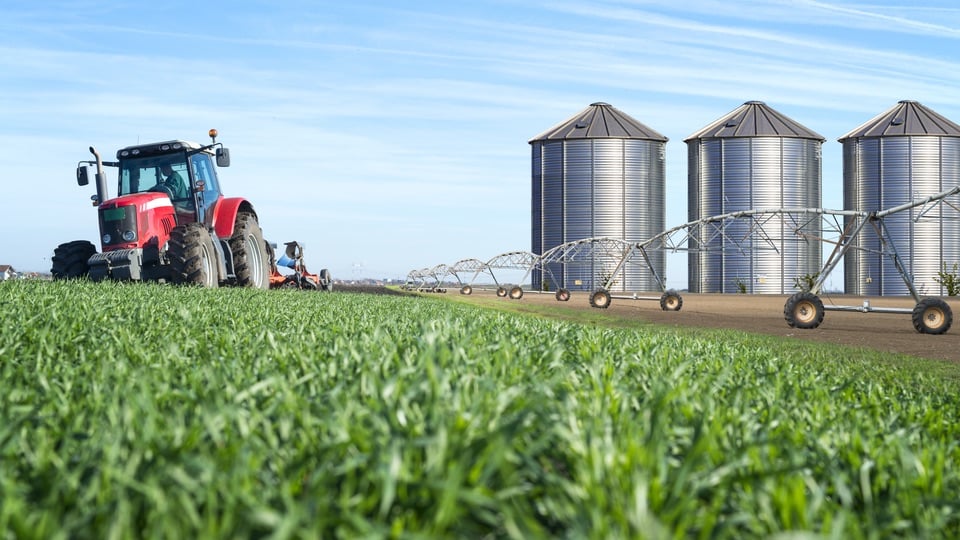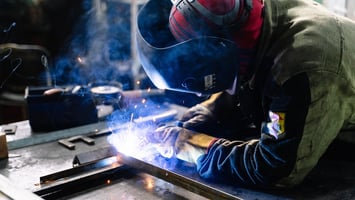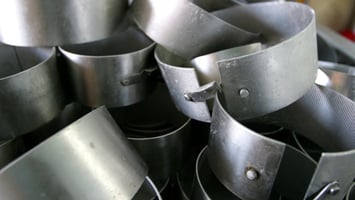Each fabrication shop has a unique inventory of metal products. And each one uses a different...
Kryton Metals Blog
How the Agriculture Industry Utilizes Metal Fabrication

Agricultural metal fabrication supplies numerous vendors with manufactured parts, playing a vital role in the economy. Agricultural equipment and heavy-duty structural steel are essential for maintaining a thriving agricultural sector. However, not all local fabrication shops possess the necessary materials and expertise for these specialized projects. Therefore, it is recommended to partner with machine shops that work closely with the agriculture sector, as American farmers deserve reliable and durable equipment.
How Is Metal Fabrication Used in Agriculture?
Farmers in the United States rely on metal fabrication for various applications. Typically, clients in the agriculture industry require customized metal components for farm equipment and construction projects. Items such as tractor parts and building materials are among the most frequently requested orders. Land managers can utilize techniques like laser cutting or metal spinning to create intricate components with ultra-tight tolerances.
Furthermore, advanced CNC machining helps reduce the weight of heavy equipment, enabling workers to plant or harvest more efficiently and increase productivity. The outcome is a robust and streamlined agriculture industry supported by comprehensive fabrication shops across America. In-house metal fabrication can also lower costs and shorten lead times, further contributing to the thriving agriculture sector.
What Metals Are Used in Agriculture?
Food production facilities depend on metal manufacturing to ensure quality products at reasonable prices. Farmers often utilize sheet metal fabrication to create machinery, fabricate custom tools, and construct storehouses. Agricultural practices represent a significant portion of business for American machine shops. Clients typically seek components for electricity, heat production, harvest management, and livestock maintenance.
The agriculture sector requires a variety of products for numerous purposes. The industry typically uses the following raw materials for precision equipment manufacturing:
- Steel
- Stainless Steel
- Iron
- Cast Iron
- Aluminum
- Brass
- Copper
- Nickel
- Lead
- Titanium
By employing efficient metal fabrication methods, agricultural clients can benefit from timely production with competitive lead times and precise accuracy. However, reliable outcomes necessitate advanced machine shops and knowledgeable experts. Consult your team for more information about the best materials or consider ordering a prototype to test different designs.
How Is Steel Used in the Agriculture Industry?
The agriculture industry thrives on high-quality structural steel, stainless steel, and customized metals. Farmers use steel products to expand properties, maintain crops, or repair equipment. As a result, you can find manufactured metals in many of the following items:
- Silos
- Storage Facilities
- Barns
- Greenhouses
- Fencing
- Balers
- Tractors
- Milk Machines
- Cotton Pickers
- Watering Systems
- Drains
- Ranch Security
- Warehouse Lighting
- Ventilation Systems
Keep in mind that each fabrication shop offers different services. Therefore, some may not have the appropriate equipment, skills, or tools to create customized metal or steel parts. If your project requires specialized services like 5-axis laser cutting or a durable powder coat, make sure to hire an expert in those areas.
How Does Steel Benefit the Agriculture Sector?
If farmers need so much steel and steel prices fluctuate, why don't they consider alternatives? The reason is that there are numerous advantages to using steel for agricultural equipment. Farming involves exposure to dirt, mud, animal waste, and chemicals, necessitating the use of durable metals for the job.
Farming equipment can easily corrode under harsh conditions. However, the gear is expensive, and so are repairs. Therefore, land managers typically prefer steel products to protect their costly equipment from wear and tear. Galvanized steel can last for years, even when exposed to the elements. With frequent weather changes, busy farms rely on robust products to harvest and distribute their goods.
Modern farming is more efficient than ever before, primarily due to the industrialization of many properties. The average American metal fabrication shop produces fast and accurate steel parts using automated machines and advanced technologies. These innovations contribute to increased productivity. Here are two primary examples:
#1. Lightweight Gear
By reducing the weight of their equipment, farmers can also decrease their carbon footprints. Less fuel consumption and faster harvests allow land managers to reap the benefits each season. Plus, lightweight steel doesn't compromise durability when crafted by an experienced fabrication shop.
#2. Extended Lifespan
Most reputable machine shops have standardized molds for creating essential food production equipment. Steel proves to be more cost-effective in the long run, as farmers don't have to repair or replace parts as often. Additionally, stainless steel is corrosion resistant.
DID YOU KNOW:
The agriculture sector also values stainless steel for its unique composition. It is easy to clean, inexpensive to maintain, and practical for raw milk and grain storage.
Common Machining Processes in the Agriculture Sector
Unfailing agriculture equipment relies on outstanding metal manufacturing techniques from ISO-certified machine shops. This is because metal spinning, laser cutting, and customized metal manufacturing are challenging and constantly evolving. Therefore, innovators in the agriculture industry must stay ahead of the harvest with sturdy equipment made from high-quality materials.
Discover the potential increase in your land’s productivity with better-fabricated steel parts. Contact KRYTON Engineered Metals for a comprehensive consultation or request a quote to determine the project parameters. We serve the agriculture sector and various other industries, offering precision metal fabrication and timely manufacturing.



